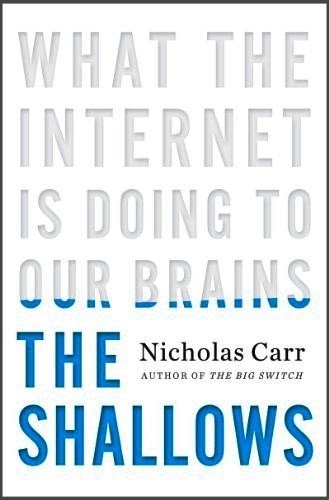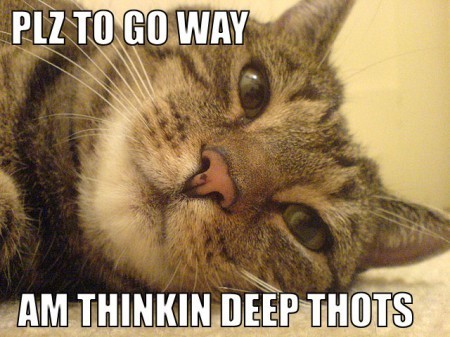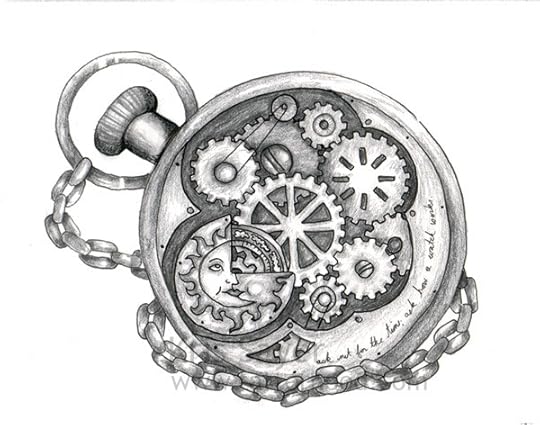R. Jean Mathieu's Blog, page 9
May 13, 2011
l’Appel
This is an appeal. An appeal to your sense of adventure, to your whimsy, to your charity.
A few months ago, on a romantic whim, and well-aware that I can only stand China for so long, I signed up for the Rickshaw Run. It’s one thousand miles of India, a couch strapped to a motorcycle, and me and whoever comes along. A one hundred per cent Adventure, straight up, with fedoras and all.

Yeah. One of these.
They just emailed me and told me that I had been accepted for the Spring 2012 run.
And that the 1000 British pound entry fee is due in three days. I can put up a fifth of that.
So. This is an appeal.
The Rickshaw Run, like everything the Adventurists do, is a charity rally. That is, every cent of that entry fee goes to FRANK Water Project, providing rural Indians with access to clean running water. I believe that makes it tax-deductible if you donate, but you’d have to check with a tax lawyer on that one.
Every one of my friends, family, or well-wishers who donates will get a mention in any media I appear in. You’ll get a special shout out in anything I write about the experience…and some of you remember Foreign Devil in China, so you know what my writing’s worth. I will be calling a friend at my local paper tomorrow to see if he’d like to follow up on a previous article he wrote on me.
This is an appeal. For charity, for the love of adventure, for publicity, for tax benefits, for my birthday, I’m appealing to you. Head over to PayPal, and drop a hundred or a fifty or a twenty in my roscoe (dot) mathieu (at) gmail (dot) com account.
I have three days to confirm Team Fedora for the 2012 Rickshaw Run. Help me do it.


March 1, 2011
Welcome to the Future
Every now and again, you have to stop and just kind of look at the world in awe. I just announced our new magazine, One Weird Idea, at the brand-spanking new Glorious Dawn Press site. The idea is to have a regular publication dedicated to the kind of science fiction that takes an idea, something absurd like thinking machines or environmental disaster or genetic engineering, and explores the implications. The kind of SF you can cut your teeth on.
Twelve years ago, I ran another magazine. I printed Rocket Takeoff in batches of a hundred at the Staples, tossing in everything that struck my fancy: Mike Combs’ The Case for Space, iron-ons, anarcho-capitalist tracts, comics, monologues against censorship. They were pocket-size, in black and white, a straight-up ‘zine. I had to sell each one by hand. I sold them for $2.50 apiece, and I barely broke even.
Now I’m gearing up to sell a magazine for 99 cents, and we’re fully expecting to pull a profit. We’re printing it without paper, selling copies to computers the size of paperbacks that can hold entire libraries. For some of our readers, they’ll be reading each issue on their phone. And I’m marketing it entirely over the Internet, with press releases, social media, and web presence. I’ve even learned to delegate.
I used to have to wait six months to a year after mailing a story to Asimov’s to hear them say ‘no.’ Now, I can get rejected in under a week from Daily Science Fiction. I’m flirting with a woman in Madras, all the way from Shenzhen, after calling my parents in San Luis Obispo, California. My father has hosted government meetings where each person was in a separate city, sometimes separate countries. Miss Madras and I trading movies, books, and music, showing each other things we’ve never seen and expanding each other’s horizons.
My friends are American, Canadian, British, Chinese, Hongkongese, Spanish, South African, Aussie, Kiwi, some are even Republican. And I can talk to all of them, as easily as I can load up a copy of Zork. Which used to come in boxes on massive floppy disks and take up all your CPU cycles, and which you can now download and play for free right now. And after such games were too old and cold and primitive to sell, people took the code, and started to play with it, and a transcontinental community emerged to make a new art form of it. At least one of them lives on his programming, all paid for by people he’s never met who contributed anonymously.
I’m an American, sitting in my office in China, looking out on a city that didn’t exist 30 years ago. China and India, though great poverty still exists, are hopeful for the future. This country was starving when I was born. Now I’m sitting next to educated, erudite, and cosmopolitan young professionals who have never known starvation.
The oil sheikhs of the Maghreb and the Middle East are crumbling and tumbling down, and democracies are blooming like flowers in the desert. They were organized in advance by people who never met each other, over computers connected to one another and running encryption to make Bruce Sterling green with envy. Senators are resigning over pictures put in the data stream by interested parties and amateurs, completely independent of the mass media. America elected a black man. Gays and lesbians can serve in the American military and will soon be allowed to marry the people they love.
Holy hell.
Welcome to the future!


February 4, 2011
Laying Down my Burdens
Some of you, who read my Facebook updates, know that I broke up with Marissa a few weeks ago. I’ve also been doing school and looking for work. I’ve found some work, and I’m now hustling to get a proper visa together.
This is all by way of explanation: I haven’t been Learning to Think.
I have to conclude that, between romantic misadventures, accounting exams, and job- and paperwork-hustling, my life is too chaotic for something like LTT. I haven’t even been able to update my blog recently.
I know at least one of you is still going strong, and I’m proud of that. Don’t let me stop you. Hell, I’ll probably come asking you for advice when my life is settled down enough to try again. And I am going to try again. But, right now, I have to get bills paid.
I am going to try and update this blog more frequently, starting with an update on Chinese New Year’s celebrations. See you soon.


January 19, 2011
Why Women Should Not be ‘Burdened’ With the Vote

This guy just says it all, don’t he. “Good to know we’ve come so far in our political rhetoric,” indeed.



Six Tips for Better Mnemonics
Having now spent a few weeks working on my mnemonics, and gotten four lessons into the 21-lesson Memory Master course, I’ve discovered a few things.
1) Be Stanley Ipkiss. Watch old cartoons.
It’s not as easy to come up with wacky links as it looks. Especially if this is your fiftieth of the day, and you’re a bit tired and hungry, and you know you’ve got another forty minutes of work ahead of you before you can even think about starting dinner. Putting it in the context of a Looney Tunes or Animaniacs cartoon (or Terry Gilliam animation) helps. Invoking that kind of spirit in your associations (whatever they are) helps. Trying to use violence or disgusting subjects actually makes it harder for me to remember, my brain seems to shy away from remembering those images. Sex helps, but not as much as you’d think. Comedy, comedy, comedy’s the thing.
2) Write it down.
It’s a quantum leap easier to remember information as I write it down. Yes, with a pen. Yes, on paper. Yes, I know they belong in a museum. It slows me down, seems more real…Initial Awareness, remember? We’re trying to raise it. Writing the list down in a notebook raises it, even if I throw the paper away right afterward (or hand it to Marissa so she can check me). It works much better for me than reading the list (from paper or screen) or hearing them aloud. I am working on making my intake of the latter stronger, so that I can apply mnemonics to things which are not easily written down (people’s names, for example).
3) Walk through the list in reverse.
Even if you don’t (or can’t) write it down, walk through the list backwards after you’ve finished forming all your links. This reinforces all the images, and familiarizes you with what it “feels like” in reverse. And, I don’t know about you, but I find it a lot easier to start at the end and work backwards. I used to solve mazes the same way as a kid.
4) Read this list.
My mother sent this to me (thanks, Mum!). Number eleven is basically mnemonics systems in a nutshell, and number fourteen talks about associations. Although it’s geared towards studying for school, most of them are applicable to other situations as well. Seriously, go read it. Memorize it, if you like.
5) Apply spaced repetition.
Use spaced repetition to really cement associations in your mind. Spaced repetition is remembering the material at longer and longer intervals (after one minute, one hour, one day…). Sounds simple, but according to studies like this one from UC San Diego, it’s a remarkably effective way to keep things in mind longer. I can offer my own testimony, in that I memorized the list of observation exercises through spaced repetition over the course of forty-eight hours, first an hour later, then twelve hours later (over my Five Will Get You Twelve, no less), then the next day…
6) Remember your limits.
By that, I mean, keep a few things in mind. Remember that, by and large, you have been memorizing lists of discrete information. They are data, and not knowledge. Knowledge comes from putting things in context, how your data (or facts) are important or relevant. You need savoir faire, not just savoir. You need to know how to use it, not just what it is. Mnemonics will help you keep facts around, but making those facts relevant and putting them in a logical framework to use later is your job.


January 15, 2011
Roscoe Learns to Think – The Second Week in Review
I started school this week. I’ve also been running to job interviews, English Corners, and so on. As a result, I haven’t been all that great at budgeting my time, and I’ve found myself squeezing out one aspect or another of Learning to Think all week.
Meditation
I meditated for the first few days in the room, wrapped in a blanket, with my hands covered with the heat pillow. Those were wonderful. For a few minutes each day, I felt the “beautiful stillness.” Then I started running around, and when I wasn’t running around, goofing off. So I took my stolen subway minutes and meditated there, or in the teacher’s lounge, or in the café after lunch, times when I had about twenty minutes and the wherewithal to do something productive with it.
That didn’t really work. I haven’t been able to really keep quiet or sit still in those places, mostly because they are so public and many of them involve necessary distractions (such as the stops being read off on the subway). I need to get back to sitting twenty minutes in my room alone, quietly, each day. Well, thirty, now.
Simulflow
Like last week, I missed a day of sitting with Kahne for an hour. However, I did manage to do some of the drills that day, so it wasn’t a total wash. As I mentioned, I wrote up several lists, and had them all memorized, and had great fun interlacing them and transposing them like we did with the alphabet last week.
But the real gains came in the drills. This wasn’t a terrible surprise to me, it was in the drills that I most felt “stiffness” and the brain-stretching sensation back in Yangshuo. On my last night, as it was clear I had achieved the level of mastery that Kahne demanded (despite my spotty attendance record), I did the drills to round out my hour. I felt stiffness and resistance throughout Drill B, that emerged into full-blown simulflow during Drill C. I again felt the sensation, pure and unmistakable, of my train of thought splitting onto two parallel tracks as I manipulated both sets of words.
I’ve discovered something with both simulflow and mnemonics: They must be taken on faith. I can’t set out or see the whole list or the whole of both words at the outset, I have to trust that I will find my way to the end. I can’t, yet, picture all the provinces I’ve memorized at once, but I can remember one or two and run from there. If I spell out t-i-k and write y-r-d, I can’t necessarily picture the “k” and the “d” when I’m writing “t” and “y,” but I have to trust that they’ll come to mind when I get there.
Have you felt this sensation? The sense that you’re running on parallel tracks, for however short a time?
Petit Perception
I’ve taken to skimping on this one. And I’m sliding back, in terms of being able to see and notice the things around me. Bad form. I still get it one or two a day, clocking a few things or scanning the room, but it’s not enough. Petit perception is difficult, because it’s not something that I sit down and do, like mnemonics practice or Kahne’s course. It’s something that I need to carry with me, running in the back of my mind, all day. And I haven’t progressed enough in Kahne to pull that off yet.
I don’t feel quite ready, or confident, about adding the concentration exercises to my routine yet. But I’m going to press on, if only because I need to memorize some poetry for Kahne’s Double Concentration drill.
However, I want to make note of something. Last night, just after I turned out the lights, I noticed how remarkably quiet it was. The traffic was muted, there were no cries or shouts from the street, the city seemed hushed. I practiced layered listening, listening to the hum of the modem, the trickle of water through the pipes, the muted roar of the city, the honking of the streets below…until I realized, with amazement, that I could go no quieter. I heard the ringing in my ears.
It was a strange moment. I’m glad I was there for it.
Mnemonics
This side of my practice has probably suffered worst this week. No sooner did Marissa and I agree to memorize the provinces of China than we set the list aside and promptly forgot about it. I made a go at remembering the first eight or so (Guangzhou, Guangdong; Fuzhou, Fujian; Hangzhou, Zhejiang; Shanghai, Shanghai; Nanjing, Jiangshu; Jinan, Shandong; Shijiazhuang, Hebei; Beijing, Beijing; Tianjin, Tianjin; Shenyang, Liaoning; Dalian, Jiling; Harbin, Helongjiang; Hohhot, Inner Mongolia) but then kind of dropped off.
I’m not very good, yet, at coming up with substitute words, and I’m not going to get any better without more practice. Therefore, I’m repeating Session C this week, in addition to doing Session D.
However, I got plenty of practice remembering long lists of things that don’t require substitute words (or at least, not very much) in the form of this week’s Kahne exercises, and I can look forward to more, in the form of next week’s.
This Week
This week, Session C (repeat) and Session D in mnemonics. That’s substitute words and people’s names and faces, for those of you playing the Home Game. We’re extending anapana to thirty minutes, and picking up some of the concentration exercises if you’re ready. Exercise III in Kahne, and keep up with the drills when you’ve got a spare moment.
We add Double Concentration this week. However, in this case, Kahne suffers from his age. I can barely remember my own address, much less anyone else’s, for the simple reason of I never need them. And email addresses are too short to cut it for this exercise. Any suggestions on what could replace the four-line physical address, something we’ve all got a small collection of in our heads to work from, that we could write down while reading out bits of poetry?


January 13, 2011
Literacy 2.Ooh Shiny!
One of today’s Fresh Pressed is the intriguingly-titled “Short Attention Span Theater or Why My Students Can’t Read Books.” It’s a review of a book called The Shallows: What the Internet is Doing to Our Brains, by Nicholas Carr. Carr’s thesis is that the Internet as a medium (not in terms of content) is changing the way we think, specifically that it encourages distraction, rather than sustained focus. Carr cites some scientific studies that extensive internet use can aggravate attention defici-ooh, shiny! and reduces memory function.

Let me put that one again: Carr’s concern, backed by scientific studies, is that extensive users of the Internet (i.e. you) have atrophied or underdeveloped abilities to concentrate, remember, and pay attention. I’d like to also reference this article from Stanford, about the limits of (media) multitasking and distractibility. If those don’t sound familiar, you haven’t been following along. 
Carr and Joseph, the blogger over at lovemesomebooks, take pains to point out that Carr’s thesis is far more nuanced than the usual brand of techno-alarmism. But if Carr’s concerns are valid, then applying mnemonics, meditating, petit perception and simulflow may actually help to correct some of the downsides of a wired existence. In the “grazing to deep reading” sense, it might be the best of both worlds: the technological tools to access wide and varied sources of information, even on a single topic, and the personal tools to resist the drive to distraction that such access brings.
How does media affect this, then? According to Carr, the Internet is a “distraction device.” Between the Skype pings, open tabs, and the monster that is TVTropes, the Internet is very, very good at getting you to come to the table and sample everything. In Steven Berlin Johnson’s terms, you are “skimming the surface of the incoming data, picking out the relevant details, and moving on to the next stream. You’re paying attention, but only partially. That lets you cast a wider net, but it also runs the risk of keeping you from really studying the fish.” And the economic, technological, and social bases of the Internet are geared towards making it more distracting over time. Your friends want to contact you. Google wants you to go to more websites so they can generate more ads. The Internet itself is based on multiple servers and users going at once (is that what ‘cloud computing’ is? I have no idea).
A book, by contrast, is a lot of text, by itself, usually on a single topic. There are no links. You can’t open another tab or another browser. It does not, itself, interrupt you in any way. And the social expectation isn’t that you’ll flip a couple of pages and move on to the next one. No, you’re expected to “sit down with a good book.” You expect to focus on it for a long period of time, to a greater or lesser degree exclusively. Books encourage deep reading in a way that the Internet simply doesn’t, but that’s all right, because the Internet encourages fact-checking and follow-up questions in a way that books simply don’t.

Speaking of, there’s a lot of discussion over there about “deep reading” and its (apparently quite close) companion “deep thinking.” Since I didn’t see a definition forthcoming, I hunted up the terms on Google, like any good member of the Social Generation. After wading through the Wikipedia article and a few irrelevancies, I found this article, from March 1997, on the subject of deep reading in the information age.
The phrase has taken on a few Luddite, a few slow-local shades of meaning since then, but in “Deep Thinking and Deep Reading in an Age of Info-Glut, Info-Garbage and Info-Tactics,”(1) the author says that deep reading, as they define it, “does not require continuing active eye contact with printed or electronic text. It may be contact with text or it may be reflection aimed at resolving some unanswered question, issue or dilemma.” That is, holding a question in mind, and keeping it there, much like the question “Who Am I?” in neti neti meditation. It is the capacity to focus, to control one’s attention, that makes for deep reading, not whether it is a book or a screen you’re looking at, or indeed if you’re looking at anything at all.
In that essay, the author also discusses (and provides links to definitions of) what they call “the post-modem skills array”(2). Among others are “seeing and finding what’s missing,” such as Harry Lorayne’s card trick (where he calls out what cards are missing from a deck recited to him), and analyzing data, a process aided by attention to detail and a good memory.
My answer to Joseph (and Carr, once I get a copy of the book and double-check that I’m reading it right) is that the downsides of extensive internet use can be mitigated by good off-line education. Through both Learning to Think and learning to think, by focusing on finding the right questions and keeping one’s analytical and synthetical skills sharp, a person can make effective use of information technology of all stripes. They can graze their way to deep thought.
By the way…
…how many of you read this in one sitting, and how many of you nipped off to check Facebook, read the latest Girl Genius or look up something on Wikipedia first? 

–
1 – What is now usually termed “information pollution.”
2 – Or “thinking skills” to you and I.


A Thought
“Picture, if you will, the New World Symphony and the Rite of Spring, having wild, orgasmic sex the likes of which you’ve never imagined in a decade of pornos. That’s what it was like.”


January 11, 2011
Another Time, Another Place (Megan’s Game)

This is another petit perception activity, to practice your talents at acute observation. It’s also a great way to pass the time for free if you’re out in town. It was taught to me by Megan Jeffrey, who now lurks over at the Den of the Press Platypus, occasionally emerging on Twitter as well. It goes like this:
While you’re out and about, take a quick look at some of the people around you. Pick one, and try to determine what other place and time that person would best fit in, and what they were doing there. For instance:
(a tough guy who looks like he’d slit your throat as soon as look at you) “Port Royal, 1693. Before the earthquake. Buccaneer, probably full pirate by now.”
(a glamorous woman) “Hollywood, 1935. Starlet, just about to break in.”
(a hipster) “Chicago suburbs, 1986. Works in a record store, will always work in a record store.”
Take as short of a glance as you need to get a snapshot of the person, something to work with, and make snap judgments. This makes an excellent opening to the Faces exercise I described in Petit Perception. But it’s also great fun by itself. How often do you let yourself jump to conclusions?
Also, as you can guess, this is awesome if you have a second (or third or fourth!) person to play with. Megan and I played it in front of Boo-Boo Records and Phoenix Books in San Luis Obispo, one Farmer’s Market long ago when we had to wait around but had no money to wait around with. I seem to remember we had someone else with us, probably one of Megan’s friends. We had a grand old time pointing people out with our chins and debating each other’s placements.
So, if any of your friends wave and ask why you’re writing little words (or the alphabet) backwards, or wonder why you closed your eyes when you walked in, invite them to come play Megan’s game with you.






